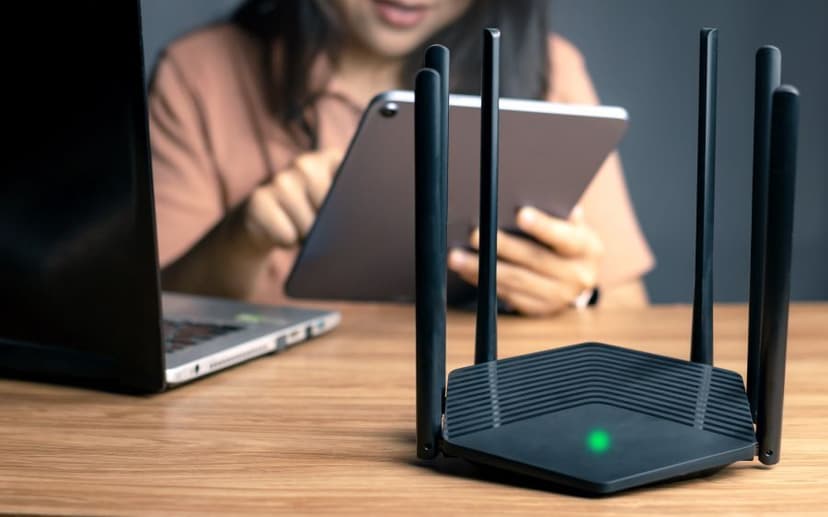Your Comprehensive Guide to Affordable and Reliable Internet Service
Dorothy Wilson • June 26, 2024 • 5 min
Finding the right internet service can be challenging due to varying availability and options across the U.S. This guide explores how zip codes impact internet access, from high-speed fiber and cable in urban areas to satellite services in rural regions. Learn about 5G, wireless alternatives, and affordable plans to meet diverse needs, ensuring reliable connectivity wherever you live.

Understanding Zip Code-Based Internet Plans
It's important to start your search for internet alternatives with your zip code. Due to the fact that Internet service providers (ISPs) frequently customize their offerings for certain geographic areas, availability might differ significantly between locations. On comparison websites, you may easily check which companies offer service in your area by entering your zip code.
There may be a range of high-speed fiber and cable choices available in metropolitan locations. In these areas, providers such as Comcast Xfinity, AT&T, and Verizon are prevalent and provide up to 1 Gbps of speed. On the other hand, DSL or satellite internet services from providers like HughesNet and Viasat may be more common in rural locations. These are sometimes the only alternatives available, although they usually offer slower speeds—between 25 and 100 Mbps.
In addition, several ISPs give exclusive deals or discounts in particular zip areas. For example, you may see bundled offers that include TV, phone, and internet services, or special prices for new clients. To be sure you're receiving the greatest offer for your needs, it's important to review these specifics.
Examining Your Address for 5G Internet Options
In the US, 5G technology is transforming internet access by providing faster and more dependable connections. If your area is contemplating 5G internet, it's important to know what to anticipate and how this technology might help you.
Compared to conventional 4G LTE networks, 5G networks are intended to offer much faster speeds—often beyond 100 Mbps and occasionally even gigabit rates. For homes who need a lot of bandwidth for things like streaming 4K films, playing online games, or using several smart gadgets at once, this makes 5G a very appealing alternative. With the help of major carriers like Verizon, AT&T, and T-Mobile, 5G is becoming more widely available in suburban and metropolitan regions as they extend their coverage.
However, in certain places—especially rural ones—the availability of 5G may still be restricted. Use online tools to verify the coverage at your address before committing to a 5G subscription. On their websites, a lot of carriers offer thorough coverage maps that let you check if your house is part of their 5G network.
The kind of 5G service that is offered is another thing to think about. There are two primary varieties of 5G: high-band, or millimeter-wave, 5G, which provides incredibly fast speeds but has more restricted coverage, and low-band 5G, which has more coverage but slower speeds. Your judgment on whether 5G is the best option for you will be influenced by whether you have access to one or both varieties, depending on your location.
Locating Inexpensive WiFi Internet Packages at Your Residence
Many homes need access to affordable internet, so it's necessary to do some research and comparison shopping to locate affordable WiFi services at your address. Numerous ISPs have affordable plans that can cover essentials without going over budget.
Searching for introductory deals is one method of locating affordable WiFi internet packages. Several service providers, including Cox and Spectrum, provide introductory pricing for the first 12 months of service. Generally speaking, these plans offer fast enough internet for regular uses like surfing, streaming, and online learning. But be mindful of any price hikes following the conclusion of the promotional period.
It's simpler to stay connected with the help of the Affordable Connectivity Program (ACP), which gives qualifying households monthly internet bill savings. Furthermore, a few carriers provide low-income plans that are intended to give qualified households access to the internet at a reasonable price.
Combining your internet subscription with other utilities is a further piece of advice. When you bundle internet with TV or phone services, many ISPs give you a discount. This may be a reasonably priced method of obtaining complete home connectivity while making overall financial savings.
Finally, for people who want to avoid credit checks and long-term contracts, investigating prepaid internet services might be a wise choice. Prepaid internet services, such as those offered by Straight Talk and Cricket Wireless, provide you flexibility and control over your monthly spending.

Wireless Internet: A Versatile Approach
Those who want mobility and freedom are choosing wireless internet more and more. In contrast to conventional wired connections, wireless internet access is facilitated via cellular networks or satellite technologies, rendering it a flexible choice for a range of circumstances.
Mobile hotspots and portable WiFi are great options for people who travel a lot or reside in places with poor wired connectivity. Mobile hotspot services from carriers like AT&T and T-Mobile let you use cellular data to connect numerous devices to the internet. Depending on your demands and budget, these plans can offer anything from a few gigabytes of data per month to infinite alternatives.
Another wireless alternative is satellite internet, which is especially helpful in isolated or rural locations without access to other internet services. Satellite internet services with different data restrictions and speeds are available from providers such as HughesNet and Viasat. For many remote homes, satellite internet is still a good alternative even if it might be more expensive and have more latency than other internet options.
For some, fixed wireless internet is a less well-known yet useful option. This technology functions similarly to mobile networks in that it provides internet connectivity using radio waves from a nearby tower. High-speed fixed wireless services are available from providers such as Rise Broadband and Starry, which makes them a good substitute for conventional wired connections.
Selecting What's Best for Your Needs
It's important to take your unique demands and circumstances into account when choosing the finest internet provider for your address. Regardless of your priorities—cost, quickness, or flexibility—there's probably a plan out there that meets your needs.
Evaluate how much time you spend online first. Your household will require a plan with greater speeds and more data if members participate in high-bandwidth activities like 4K streaming or online gaming. On the other hand, a less expensive plan could work if your consumption is more moderate and only consists of surfing and the occasional video streaming.
Next, think about how crucial flexibility is. Wireless choices like mobile hotspots and 5G subscriptions can be the best choice if you require internet connectivity on the road. Traditional cable connections or fixed wireless internet may offer more dependable and affordable options for people who are stationary.
Finally, remember to account for the expense. To locate the best offers, compare various providers and plans available in your zip code. Seek out deals and package choices that can lower your total costs.
Through comprehensive investigation and comparison shopping, you may choose an internet package that fulfills your requirements without sacrificing cost or quality. It's easier than ever to stay connected, whether you choose dependable cable, fast fiber, or adaptable wireless internet.
Disclaimer: This article is for informational purposes only and does not constitute professional advice. Always consult with a qualified internet service provider to determine the best options for your specific needs.